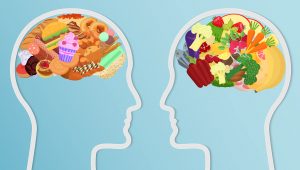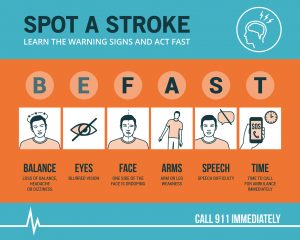Type 2 diabetes is a condition of insulin resistance. This particular condition is related to obesity and inflammation versus Type 1 diabetes that is insulin-dependent. If uncontrolled, diabetes can lead to conditions such as tingling nerve pain in the hands and feet, slow emptying of the stomach also known as gastroparesis, and increased risk of heart disease. Furthermore, a recent study has found a link between brain health and type 2 diabetes.
Diabetes and Brain Health
A 2017 study in Diabetologia looked at Asian adults between the ages of 30 and 60 years old. This study looked at the brain health of those with diabetes versus those who  did not have the condition. Subjects underwent MRI brain scans and tests to measure memory and thinking skills. Test results showed those with diabetes to have decreased cortical thickness as compared to those without the condition. Furthermore, additional thinning of the temporal lobes was found in overweight and obese subjects with the condition. A 2009 study in Intelligence found that cortical thickness has been linked with cognitive function Therefore, it can be suggested that those with diabetes are at risk for decreased cognitive function if the condition is not controlled.
did not have the condition. Subjects underwent MRI brain scans and tests to measure memory and thinking skills. Test results showed those with diabetes to have decreased cortical thickness as compared to those without the condition. Furthermore, additional thinning of the temporal lobes was found in overweight and obese subjects with the condition. A 2009 study in Intelligence found that cortical thickness has been linked with cognitive function Therefore, it can be suggested that those with diabetes are at risk for decreased cognitive function if the condition is not controlled.
How Can Brain Health Be Improved?
Inflammation and poor blood glucose control affects brain health. Therefore, there are several ways you can protect your brain health:
- Consume a carbohydrate-controlled diet to better control blood glucose levels. You can control blood glucose levels by limiting concentrated sugar intake and increasing fiber intake. For example, decrease intake of sugary drinks like colas and juices as well as candies and baked sweets that contain concentrated sugars. Fruits, vegetables, and whole grains like quinoa, brown rice, and oats are fiber-rich.
- Consume antioxidant-rich foods such as fruits and veggies to help decrease inflammation in your diet. In addition, the omega-3 fatty acids in fatty fish like salmon and in plant-based oils, nuts, and seeds can also prevent the cell damage related to inflammation in the body.
- Stay active daily to help better control blood glucose levels and to help with stress management. For example, just 30 minutes of moderate activity like walking for 5 times a week can help you maintain weight, lower stress, strengthen your heart, and in turn decrease inflammation in the body.
- Take high quality supplements like Glucarex by Vita Sciences to help better control your blood glucose levels. Glucarex contains ingredients like chromium and alpha-lipoic acid, which helps to keep existing blood glucose levels within normal range.
Visit the American Diabetes Association website for more ways you can control your blood glucose levels and keep your heart and brain in the best health possible.
-Written by Staci Gulbin, MS, MED, RD, LDN
Sources:
American Diabetes Association (accessed April 30, 2017) “Complications” http://www.diabetes.org/living-with-diabetes/complications/
Karama, S., et al (2009) “Positive association between cognitive ability and cortical thickness in a representative US sample of healthy 6 to 18 year-olds.” Intelligence, 37(2): 145–155.
Mayo Clinic (Feb.7, 2017) “Add Antioxidants to Your Diet” http://www.mayoclinic.org/healthy-lifestyle/nutrition-and-healthy-eating/multimedia/antioxidants/sls-20076428
Medline Health News (April 27, 2017) “Type 2 Diabetes May Be Bad for Brain Health” https://medlineplus.gov/news/fullstory_164982.html
 than those without diabetes for gum infections. Furthermore, those with diabetes have been shown to have greater blood vessel damage when they have high cholesterol than those without diabetes.
than those without diabetes for gum infections. Furthermore, those with diabetes have been shown to have greater blood vessel damage when they have high cholesterol than those without diabetes.


 1.) Lower your sodium intake. A recent study of the U.S. National Health and Nutrition Examination Survey looked at salt intake and high blood pressure, also known as hypertension. Between 1999 and 2012, the sodium intake of those with hypertension rose nearly 14-percent from 2900 to 3350 milligrams daily. The recommended sodium intake for those with hypertension is 1500 milligrams a day, while those without hypertension should limit intake to 2300 milligrams daily. It is important to note that that 2300 milligrams of sodium is equal to just one teaspoon of salt. Furthermore, reports show that three-fourths of the sodium most people consume daily is not from added salt. Instead, most excess sodium intake is from consuming processed food products. Therefore, it is important to limit prepackaged foods such as:
1.) Lower your sodium intake. A recent study of the U.S. National Health and Nutrition Examination Survey looked at salt intake and high blood pressure, also known as hypertension. Between 1999 and 2012, the sodium intake of those with hypertension rose nearly 14-percent from 2900 to 3350 milligrams daily. The recommended sodium intake for those with hypertension is 1500 milligrams a day, while those without hypertension should limit intake to 2300 milligrams daily. It is important to note that that 2300 milligrams of sodium is equal to just one teaspoon of salt. Furthermore, reports show that three-fourths of the sodium most people consume daily is not from added salt. Instead, most excess sodium intake is from consuming processed food products. Therefore, it is important to limit prepackaged foods such as:

 Are you one of the 30-percent of the American adults that skips breakfast? Time and time again you may have heard that breakfast is the most important meal of the day. A recent study has found that breakfast may improve heart health by reducing risk of heart disease.
Are you one of the 30-percent of the American adults that skips breakfast? Time and time again you may have heard that breakfast is the most important meal of the day. A recent study has found that breakfast may improve heart health by reducing risk of heart disease. risk of heart attacks and death by taking niacin with cholesterol-lowering medicine. Beets, beef liver, tuna, salmon, sunflower seeds, and peanuts all contain niacin. When taken as a supplement, however, keep intake levels below the upper limit of 50 milligrams. Otherwise, dangerous side effects such as liver damage and stomach ulcers may occur. However, niacin is a water-soluble vitamin excreted in the urine daily. Therefore, a person is unlikely to overdose on niacin.
risk of heart attacks and death by taking niacin with cholesterol-lowering medicine. Beets, beef liver, tuna, salmon, sunflower seeds, and peanuts all contain niacin. When taken as a supplement, however, keep intake levels below the upper limit of 50 milligrams. Otherwise, dangerous side effects such as liver damage and stomach ulcers may occur. However, niacin is a water-soluble vitamin excreted in the urine daily. Therefore, a person is unlikely to overdose on niacin.